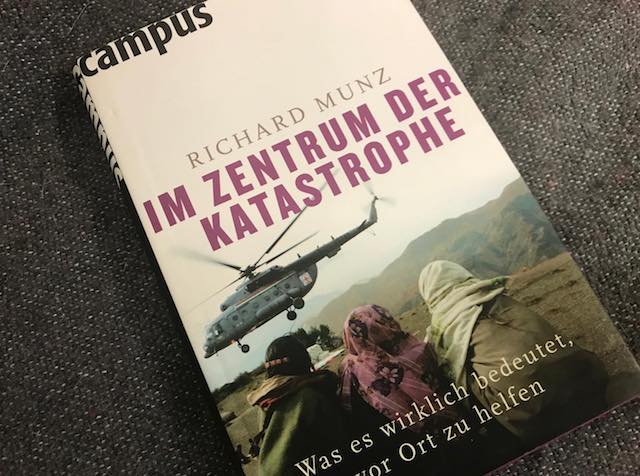Get the weekly SPARTANAT newsletter.
Your bonus: the free E-Book from SPARTANAT.

Emergency forces fight their way through, help people, try to organize in the chaos - and save human lives as efficiently as possible. Richard Mund has looked at this around the world. That was his personal introduction to the topic: "Nearly a year after the tsunami disaster, I was on the road again in Sri Lanka and Thailand with a TV team to make a documentary about the current state of relief efforts that were started with enthusiasm and even more concern after the massive media campaign and the resulting huge willingness to donate. We met frustrated helpers and affected people who still did not know how their lives should continue. We met relief organizations that were still under enormous pressure to spend the huge donation amounts as quickly and as meaningfully as possible for the survivors of the tsunami. A completely unmanageable number of actors had obviously made any reasonably sensible coordination of relief efforts impossible. I had the feeling that the affected helpers, the well-meaning relief organizations, and also the survivors of the disaster had become the joint victims of all the clichés about international disaster relief that such media events always renew and worsen. While we were filming there, the earth trembled in Kashmir. I said goodbye to the TV journalists and flew directly from Bangkok to the earthquake area. The contrast to what I had seen in Sri Lanka and Thailand just a few days earlier could hardly have been greater. Only a few organizations were on site in Kashmir. The media were also almost non-existent. However, the number of affected people was about twice as high as in all the countries hit by the tsunami combined. The relief organizations were desperately trying to raise donations to help the survivors in the snow-covered mountains. This situation was probably the beginning of this book. It is intended to describe what really happens in such situations and what actually lies behind the bold headlines of our mass media." For us, a completely different book that shows what happens when the worst-case scenario occurs. And it also gives us insight that is rarely obtained. SPARTANAT reading recommendation for Christmas!
“In the Center of the Catastrophe: What it really means to help on-site“ by Richard Munz, 246 pages, Campus Verlag, 2007, Euro 22,–
SPARTANAT is the online magazine for Military News, Tactical Life, Gear & Reviews.
Send us your news: [email protected]
Ad
similar
Get the weekly SPARTANAT newsletter.
Your bonus: the free E-Book from SPARTANAT.


